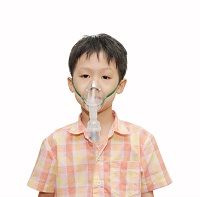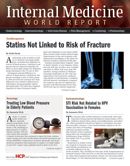Publication
Article
Internal Medicine World Report
Adherence for Pediatric Asthma Medication Improved with Phone Call Reminders
Author(s):
Phone call reminders to parents about their child's asthma medications improved adherence levels relative to typical care, according to a study published in JAMA Pediatrics.

Low cost speech recognition (SR) interventions for pediatric asthma patients have a strong potential, according to findings published in JAMA Pediatrics.
Researchers from Kaiser Permamente examined nearly 1,200 children aged 3 to 12 years for 24 months in order to test a SR intervention to improve adherence to pediatric asthma controller medication. The participants had persistent asthma diagnosis and prescription for an inhaled corticosteroids and were randomized to receive either usual care or computerized SR intervention between October 2009 and February 2013. Both cohorts received care from pediatricians, family physicians, and allergists who were all trained by the National Heart, Lung, and Blood Institute guidelines for asthma care.
The intervention consisted of 1 of 3 SR call types between 9 am and 8 pm until the parent or an answering machine was reached: the welcome call, the basic refill call, and the tardy refill call. The welcome call was placed the first time the patient’s ICS prescription was overdue by 14 days, and was designed to allow the parent to control the call — the parent had to grant permission to proceed each step of the call. The basic refill call occurred 10 days prior to when the child was scheduled to run out of medication and was a basic reminder to refill, help refilling, and the option for additional assistance. The tardy refill call was placed to parents whose child was 30 days past the ICS medication refill date. The call emphasized the importance of medication adherence for the child’s health.
Families in the intervention group were more adherent to their inhaled corticosteroid (ICS) medication over the 24 month follow up period than those participants in the usual care group (25.4% higher in the intervention group). The researchers determined that the intervention effects persisted throughout the first year — the usual care group was 25.8% adherent in year 1 and 25.3% in year 2. This was determined to be consistent when subgroups were categorized by age, sex, race/ethnicity, body mass index, or disease related characteristics.
Parent satisfaction was also measured for 12 months during the study, of which 42.8% of the intervention group completed. More than 90% of the parents assessed agreed or strongly agreed with the following statements about the intervention:
- “The Breathe Well program has improved the care my child receives for asthma at Kaiser”
- “The Breathe Well phone calls were helpful”
- “Getting help refilling my child’s asthma medication through the Breathe Well program was helpful.”
Additionally, 84% of families agreed with this statement: “Because of the Breathe Well program, my child’s asthma is now under better control.”
“The significant improvement in adherence demonstrates strong potential for automated adherence interventions integrated within an electronic health record,” the authors concluded. “Relative to usual care, the Breathe Well SR intervention produced improvement in ICS medication adherence that was greater by degree and duration than in any previous pediatric asthma adherence intervention study to our knowledge.”






